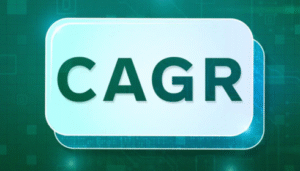1. What is a retirement corpus?
Answer: A retirement corpus is the total amount of money you accumulate over time to support yourself during retirement. It is typically made up of savings, investments, and pensions.
2. Why is it important to build a retirement corpus early?
Answer: Starting early allows your investments to grow through the power of compound interest. The longer you save, the less you have to contribute later on to reach your retirement goals.
3. How much should I save for retirement?
Answer: The amount you need depends on your lifestyle, expected expenses, and desired retirement age. A common recommendation is to save at least 15% of your annual income towards retirement.
4. How does starting early impact my retirement savings?
Answer: Starting early allows your investments to benefit from compound interest. Small contributions made early in life can grow into a much larger sum by retirement.
5. What are the benefits of compound interest in retirement savings?
Answer: Compound interest helps your investments grow exponentially by earning interest on both the principal amount and the accumulated interest. This helps your retirement corpus grow at an exponential rate.
6. When should one begin to create a retirement corpus?
Answer: The earlier, the better. Ideally, you should start saving for retirement as soon as you begin earning. The longer your money has to grow, the less you’ll need to contribute later on.
7. How much should I save each month for retirement?
The amount saved would depend upon the income level, retirement goals, and your retirement time line. The rule of thumb to begin with would be 10-15% of monthly income. Based on specific retirement requirements, one would have to alter the savings plan.
8. What types of investment options are good for building a retirement corpus?
Answer: Stocks, bonds, mutual funds, real estate, IRAs, 401(k)-one can get money from them on retirement for survival. With increased diversification in a portfolio comes reduced risk with full growth possibilities.
9. Risk plays which of the above two roles during creation of corpus of retirement
Answer: Risk impacts your potential returns. Generally, higher-risk investments such as stocks yield higher returns over the long term but are more volatile. You should balance risk and reward based on your time horizon and risk tolerance.
10. Should I focus on low-risk investments when building a retirement corpus?
Answer: Early on, you can afford to take more risk since you have time to recover from market fluctuations. As you approach retirement, it’s advisable to reduce risk and shift toward more stable investments.
11. What is the role of diversification in building a retirement corpus?
Answer: Diversification gives your investment in various asset classes, which allows you not to be heavily hit when there is market volatility and sets a potential for consistent returns.
12. What are retirement accounts?
Helping with: Retirement accounts, like IRAs, 401(k), and pensions, provide a tax advantage for those savings. They help one accumulate wealth for retirement and defer or decrease tax on earnings.
13. What is the 4% rule on retirement withdrawals?
Answer: According to the 4% rule, you will be able to withdraw 4% of your retirement corpus every year to pay for living expenses. This rule thus helps you find out how much you need to save for retirement.
14. How do taxes impact my retirement corpus?
Answer: Taxes can erode your retirement savings. Contributions to tax-deferred retirement accounts reduce your taxable income in the short term, but withdrawals may be taxed when you retire. Understanding tax implications is essential for optimizing savings.
15. How can I track the growth of my retirement corpus?
Answer: You can track your growth through regular monitoring of your portfolio through online tools, retirement planners, and investment statements. Review your progress annually and adjust if necessary.
16. Should I automate my retirement savings?
Answer: Yes, it’s easier to save consistently by automating your contributions. You can set up automatic transfers to your retirement accounts and ensure that you save regularly without having to think about it.
17. Which retirement account to choose: 401(k) or IRA?
Answer: Compare the benefits of each account, such as contribution limits, employer matches (for 401(k)s), and tax advantages. A financial advisor can help determine which option is best based on your financial goals and situation.
18. Do employer-sponsored retirement plans help in building my retirement corpus?
Answer: Yes, employer-sponsored plans like 401(k)s can significantly help build your retirement corpus, especially if your employer offers matching contributions. These plans often come with tax benefits as well.
19. What is the significance of an emergency fund in retirement planning?
Answer: An emergency fund helps prevent you from dipping into your retirement savings for unexpected expenses. It provides financial security, allowing you to focus on long-term retirement planning.
20. In what way can inflation and creeping cost erosion in my retirement corpus be managed?
Answer: An inflation reduces my money’s worth or purchasing value. To prepare for the times of rising costs going ahead, therefore, invest with assets that grow more than what the inflation creeps in-e.g., the equity.
21. Do I need a Financial Advisor to organize my retirement corpus?
Answer: A financial advisor can help you develop a tailored retirement strategy, recommend suitable investment options, and ensure your retirement goals align with your current financial situation.
22. What is the difference between a pension and a retirement savings plan?
Answer: A pension is a defined benefit plan that guarantees a fixed income in retirement. A retirement savings plan, like a 401(k), is a defined contribution plan where you accumulate savings based on your contributions and investment performance.
23. How do health care costs impact my retirement corpus?
Answer: Healthcare costs rise with age. Hence, it would be prudent to factor in this expense in the retirement corpus. Consider health savings accounts or long-term care insurance.
24. Can I invest in real estate as part of my retirement corpus?
Answer: Yes, real estate can be a good addition to your retirement plan, providing potential rental income and long-term capital appreciation. Of course, then there are the risks and liquidity issues associated with real estate investments.
25. How does Social Security contribute to building a retirement corpus?
Answer: Social Security can be a source of part of your retirement income. However, it usually is not enough to fully fund your retirement, so you need to supplement it with personal savings and investments.
26. How do I plan for retirement if I start later in life?
Answer: If you start saving later, increase your contributions, reduce your lifestyle expenses, and consider more aggressive investment options to maximize your retirement savings within a shorter timeframe.
27. What are the best retirement investment strategies for someone in their 20s or 30s?
Answer: For younger individuals, aggressive growth strategies, such as investing in stocks and mutual funds, are ideal. Focus on long-term growth and take advantage of compound interest.
28. How often should I review my retirement plan?
Answer: You should review your retirement plan at least once a year or whenever there’s a major life event (e.g., a raise, change in employment, or a large purchase). This ensures you’re on track to meet your goals.
29. How do I know if my retirement corpus is sufficient?
Answer: Retirement calculators or financial planners can estimate how much one will require. Ideally, retirement corpus should amount to 70-80% of your pre-retirement income.
30. Can I withdraw early from my retirement accounts?
Answer: Most retirement accounts attract penalty and taxes when withdrawn before the retirement age. Generally, you should avoid the use of retirement savings for purposes other than retirement unless there is no choice left.
31. How do I manage risk as I build my retirement corpus?
Answer: As you approach retirement, reduce risk by moving investments into safer, lower-volatility assets such as bonds. Early on, you can afford more risk with higher-growth assets such as equities.
32. What are tax-advantaged accounts, and why are they important for retirement savings?
Answer: Tax-advantaged accounts, such as IRAs and 401(k)s, allow you to save for retirement while deferring taxes on your contributions or investment gains. This helps maximize the amount of money you have for retirement.
33. What happens if I don’t reach my retirement savings goal?
Answer: If you are short, you may have to scale back your retirement lifestyle expectations, extend your working years, or increase contributions to catch up. You must make adjustments early on.
34. Can I use my retirement savings for non-retirement goals?
Answer: You can take money out from retirement accounts at any time; however, these withdrawals are taxed and penalized. So it is always wise to keep retirement savings strictly for retirement.
35. Why do I need to start investing in my retirement corpus when I’m in my 20s?
Answer: The impact of starting early is that you get the benefit of compounding over decades, allowing even minor contributions to grow into a sizeable amount when retirement comes.
36. How do I make saving for retirement work in tandem with other financial objectives?
Answer: Retirement savings should be front-and-center, along with building an emergency fund or repaying high-interest debt. Automation can ensure you save reliably for retirement on a regular basis, allowing for balance elsewhere.
37. Pay off debts or save money for retirement
Answer: Probably you should worry about paying a high-interest first, since doing so would render you less competent in saving efficiently. Nevertheless do not totally drop retirement savings accounts; aim for both goals on a balanced platform.
38. I am still behind with respect to my pension savings.
Answer: If you are behind, increase your contributions, cut back on discretionary spending, and reassess your investment strategy. You may also need to delay retirement if necessary to ensure that you have enough savings.
39. What are the risks of not saving for retirement?
Answer: Not saving for retirement increases the likelihood of financial struggles in your later years. You may be forced to work longer, reduce your standard of living, or rely on family or government assistance.
40. What should my retirement plan include?
Answer: Your retirement plan should be characterized by well-defined savings goals, an investment strategy, emergency funds, tax planning, and long-term health care plans. Revisit the plan periodically for income or goal changes.
The more you build your retirement corpus, the more likely you are to enjoy a comfortable retirement, one in which you have financial independence. The more you follow these guidelines, the smarter you are in making retirement decisions.










Ready to roll the dice at 7betcasino! I’m expecting a smooth experience and some exciting games. Let’s see if lady luck is on my side! Check it out: 7betcasino